Zero Waste Home: What I Learned from Bea Johnson’s Book
For almost a whole decade, I have minimized the amount of discards to the point where I usually do not have to bring out trash to the curb more than once every two or three months. But late last year, I decided I should be able to do better. Or rather, much better, if you were to look at Bea Johnson as an example.
Who is Bea Johnson? She is a French-born, Marin County resident who wrote a popular book entitled Zero Waste Home that launched a worldwide zero waste movement. Her whole household, which includes a husband, son, and dog, generate no more than a quart-sized jar of garbage each year. Her mantra is refuse, reduce, reuse, recycle, rot—in that order. By following those five R’s, she has been able to virtually eliminate having anything that gets sent to a landfill. In addition, she also has very few things that needs to be sent out for recycling.
Why is that appealing to me? Less impact on the earth, optimization of resources, and minimalization/simplification of chores (e.g., no trash to take out). She also pointed out in her book her family actually ended up saving a lot of dollars after the changes.
Seeing what was possible, in December I decided that I would strive to have a zero waste home in 2017. I am not there yet, but have taken a number of steps to get there.
Below are the steps I have taken so far and what I have learned in this zero waste quest.
Ideas from Bea Johnson’s Book
Below are some of Bea Johnson’s ideas and practices, which I jotted down either because I thought they were novel or interesting or simply good ideas.
- Shop primarily the perimeter of a grocery market, which is where produce and refrigerated items generally are. They are generally less processed and packaged than the items in the middle of the store.
- Use the cloth bags for leafy greens and beans. (Tori gave me some years ago for this purpose, and I have become diligent about using them.)
- Refuse freebies including free race shirts.
- Bring a lot of glass jars for bulk foods with tare weights already noted on them.
- Soak and cook beans. (I cook them in an uncovered bowl in the microwave now.)
- Investigate if there is a place (e.g., bakery) where bread can be purchased without packaging and use pillow cases instead. (I haven’t done this yet.)
- Have butcher put meat in jars I bring. People say some, but not all, Whole Foods employees would do this. (I have not tried this yet.)
- Use a washable crayon to write bulk food product code on jar. (I use a pencil with an eraser instead.)
- Bring dispensers into a shop that dispenses bulk shampoo and conditioner. (The Fort Collins Food Co-op does this.)
- At a farmer’s market, if berries come in a mesh basket, pour berries into one of your bags and hand back basket to farmer
- Wilted lettuce can be revived in a bath of ice water.
- For parties, serve food onto people plates instead of using serving trays.
- Use pinkie (called “ear finger” in French) to clean ears instead of Q-tips.
- Combine toiletry bottles, e.g. hotel shampoo bottles. Refuse the hotel shampoo bottles in the future.
- Compost hair (including cat hair) or throw out the window for birds.
- Mold slivers of old bar soap into new soap.
- Sesame oil provides light sun protection (exact SPF unknown). (I use UV sleeves.)
- A rich soap bar for can be used instead of shampoo and shaving cream.
- Tooth powder: one cup baking soda & one teaspoon stevia powder. Dispense using salt shaker. (I have yet to try this.)
- Compostable bamboo toothbrush sold in cardboard. (I have yet to do this; will need to refuse the free toothbrushes from the dentist.)
- Use handkerchief instead of tissue.
- Use powdered laundry detergent that comes in paper boxes instead of liquid that comes in plastic containers.
- Bring own cup/bottle into coffee shops and restaurants. (I do this at every fast-food restaurant I go to now, e.g., Subway and Chipotle, instead of asking for a disposable water cup. I also bring one to the airport.)
- “I don’t need a receipt.”
- “I don’t need a bag.”
- Assign different napkin colors for guests or napkin rings
- Air out sheets between washings. “Purifying” means airing out in French. (I do not bother to do this.)
- Instead of sponge or scouring pads that fall apart or become dull, use rags and heavy duty metal scourer.
- Castille soap can replace all soaps and detergents and is natural.
- Wash and dry laundry in one day since warmth of the dryer transferred from one load to the next.
- Laser printers have been linked to respiratory problems due to particles emitted?
- Forget about keeping electronics packing material which does not add to resale value.
- Entire pads of Styrofoam are accepted at UPS Stores. (I tried this, and they do!)
- Best Buy collects cords, cables and CDs for recycling.
- Pencils contain graphite, not lead, and their shavings can be composted.
- Fill out USPS moving address form with “moved-no forwarding address.”
- Mark first class Mail and third class mail that mentions address forwarding with “refused-return to sender” and “remove from mailing list.” (Note: tried in February 2017, but USPS simply reforwarded mail back to me.)
- Lent: try something new for 40 days until Easter
- Compost vacuum cleaner contents (might be a bit of a hassle to empty vacuum cleaner bag though?)
I’ve been doing most of the above now, except where noted.
Other Ideas
The following are a few ideas I came up with.
- For infrequent times going to fast food restaurant, park car and walk into restaurant instead of using drive-in. That way, no paper bags and no or less napkins are given. Also saves time, gas, and pollution.
- Blow nose in the shower or above the sink instead of using tissue.
Jars for Bulk Items
Bringing glass jars in for bulk items has probably been the biggest change I’ve made this year. It means less plastic bags to recycle.
Bea Johnson uses French masonry jars with cork toppers. They look great, but are expensive.
Instead, I’ve been using Adam’s (brand) Natural Peanut Butter jars—the large ones. Their labels are easy to remove by soaking in water for 10 minutes and then using a blunt edge like a fork handle. They are of a constant diameter all the way up and I can get four fingers in there to clean the inside with a sponge.
On the jar tops, I’ve stuck on circular labels from vinyl contact paper I was leftover from 2011’s Furnace Creek 508. (The contact paper was excellent for signage on the crew vehicle.) On the label, I permanently marked the jar’s tare weights with ink. I bring a pencil with eraser to write the bulk codes on them.
Regarding stores where you can bring in your own jars for bulk items, I’ve found that this is absolutely no problem in Sprouts and the Fort Collins Food Co-op as it’s no big deal to the cashiers. (I imagine it would be no problem in Whole Foods as well.)
I’ve also done it in King Soopers—which is a large supermarket like Kroger’s, Safeway, or Albertsons—but once it flustered a cashier. Another time, the cashier didn’t bother to subtract the tare weight until I asked him too.
So if you bring in your own glass jars to a place you are unsure of, I’d suggest keeping an eye on the cashiers to make sure they subtract the tare weight of the jars. It’s also best to do this during non-peak hours.
A Note About Subway
For a franchise that purportedly prides itself on environmental leadership, the Subway closest to me was an egregious offender of putting sandwiches into plastic bags willy-nilly. For dine-in customers, there is absolutely no reason to have a bag since the sandwich will be taken out of them within 60 seconds. I would argue for take-out customers, the bag is usually unnecessary as well. Yet, the cashiers would automatically bag the sandwich.
In fact, during the first few weeks that I started telling them “I don’t need a bag,” the cashiers would often forget three seconds later and then apologize for their muscle memory. But eventually, the cashiers got used to it.
I still have to usually remind them I do not need a bag, but at least nowadays the whole concept doesn’t seem foreign to them anymore.
No More Free Newspapers!
For well over a year, the local newspaper company (The Coloradoan) was littering my driveway once (or occasionally, twice) a week with their “free” weekly paper called Ticket that consisted of two pages of articles and 20 pages of ads. I called and emailed them numerous times to stop that practice to no avail. (Note: from 2006-2015, I had successfully gotten them to stop tossing papers at my house by calling them whenever they resumed doing so.)
Ultimately, I got them to stop by putting out the following sign on my driveway, and also calling them out on social media such as Instagram and Twitter.
I am happy to say that since doing that at the end of last year, I have yet to receive the Ticket. Not only has it kept my recycle bin a lot emptier, but I no longer have to stoop down and pick up their litter from the driveway every week, or have to recycle the newspaper bags!
Things I Learned About Plastic Bag Recycling
The following is information I did not learn from Bea Johnson’s book. Instead, I got it from Hilex Poly’s websites and supermarket plastic bag recycling bins. Hilex Poly is the main plastic bag recycler in the U.S.
It makes me think that plastic bags are not nearly as “evil” as Bea Johnson makes them out to be? I still try to minimize usage and acquisition of them, though, to have less to recycle.
- The plastic bag recycling bin at King Soopers says, “Our Environmental Promise: Plastic bags returned here will be recycled into new plastic bags. –hilexpoly.com“
- Hilex Poly’s FAQ has a section on what can be recycled in the bag recycling program. It, somewhat surprisingly, includes not just the plastic retail/grocery bags that have already been banned in many cities, but also produce bags, newspaper bags, dry cleaning bags, cereal box liners, paper towel and toilet paper wrap, sealed air pouches in mailed packages, and Ziploc bags (remove the zippers first if they are on there). The FAQ also talks about how plastic retail bags are made from natural gas byproducts, not from oil.
- The website A Bag’s Life (which was linked to from Hilex Poly’s site) also says Tyvek and bubble wrap can be tossed in the supermarket recycle bag bins.
- Novolex’s website (also associated with Hilex Poly) talks about how the bags are actually recycled into new plastic bags and not merely down-cycled into other plastic items that cannot be recycled again.
I think (but am not sure) that the plastic water bottles and milk jugs you recycle at trash collectors’ curb-side recycling programs are down-cycled into other plastic items that cannot be recycled again. If that’s the case, plastic bags are more eco-friendly than other plastic items.
To Do
I have greatly cut down on the amount of trash and recyclables, but I still need to do more to have a zero waste home.
Most of my garbage and recyclables are actually because of my cats. More than 90% of my trash is kitty litter, and over 50% of the recyclables are cat food cans.
I intend to implement some sort of kitty litter composting system in the future. And my friend Tori has been successfully making cat food herself and sent me instructions on how to do so, but warned me that every time she does so, it takes her a couple hours. (She makes a huge batch once every three weeks.) So mainly because of the time commitment, I am still buying and recycling cat food cans for now.
(Note: from what I understand, wet cat food is much healthier than dry cat food, which is why I have been getting canned cat food in the first place. This is something I may need to investigate further.)
If I can do all the above and have a truly zero waste home, I could even eliminate trash services altogether. That will be a goal for 2018!
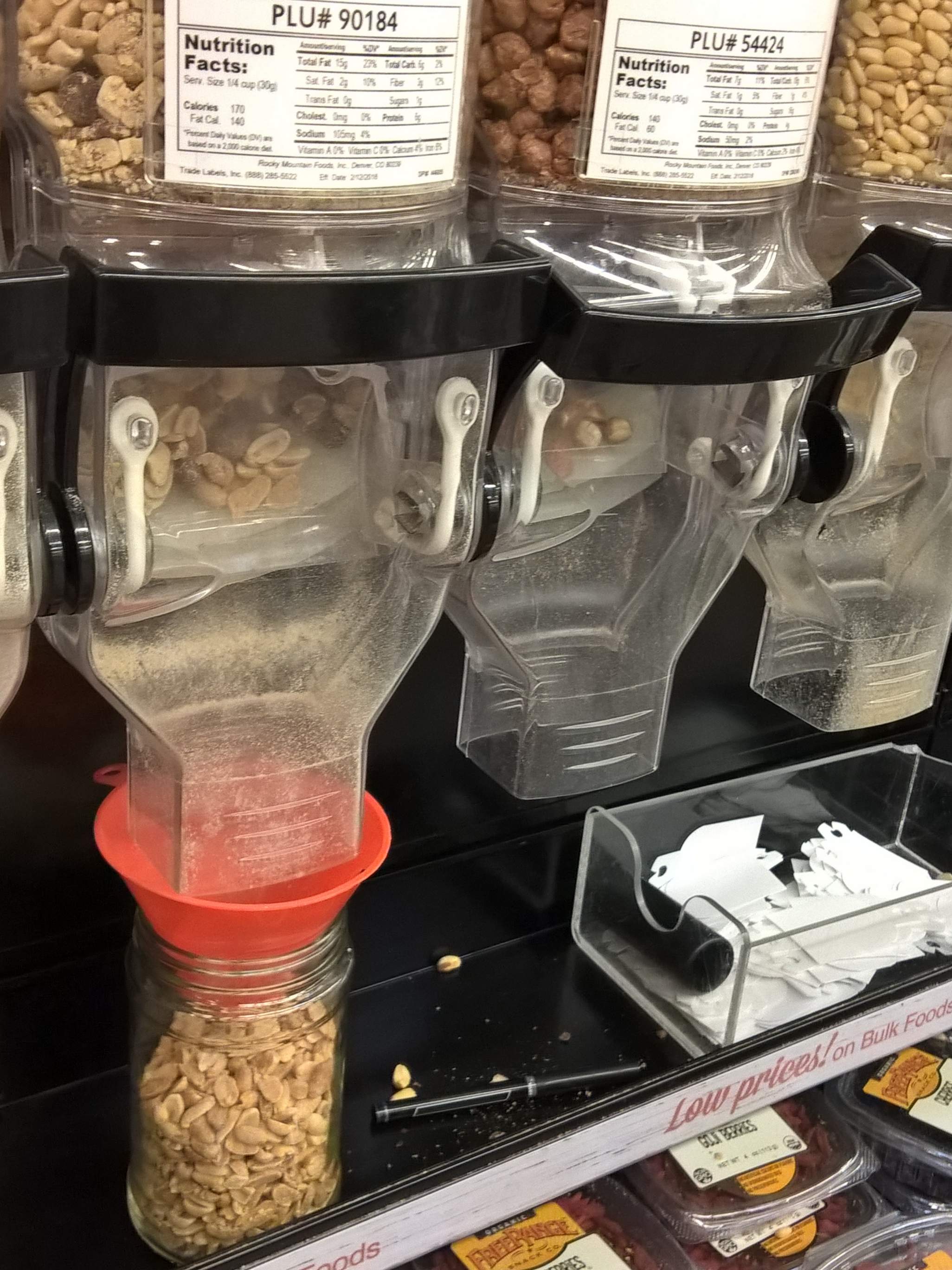
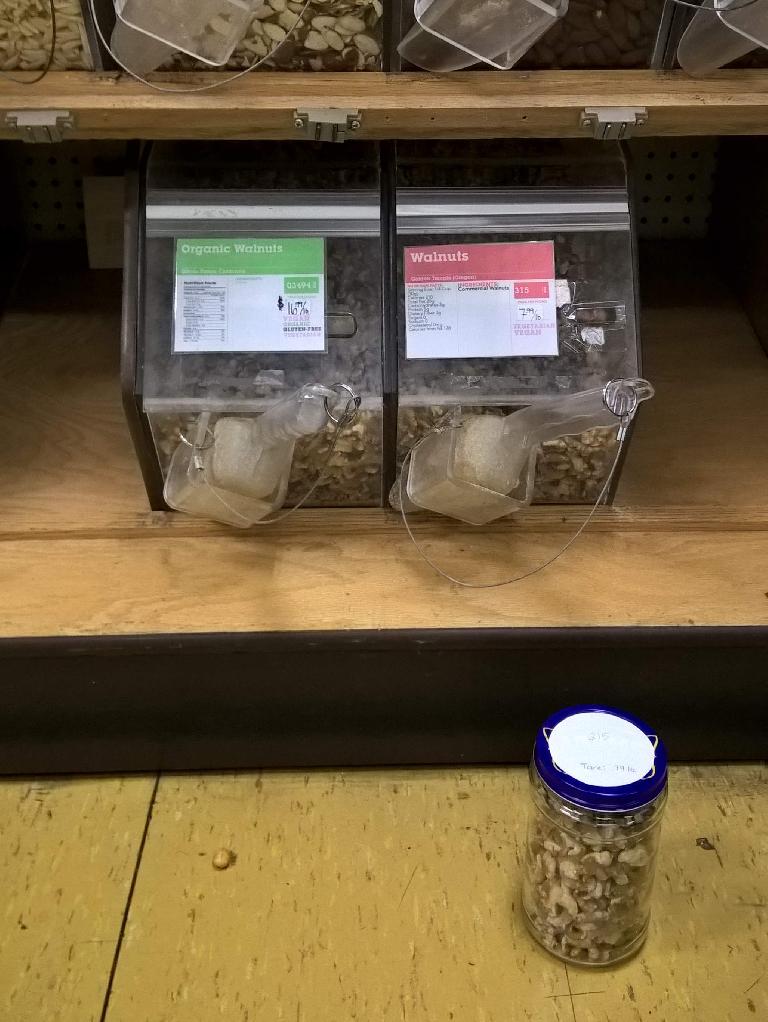
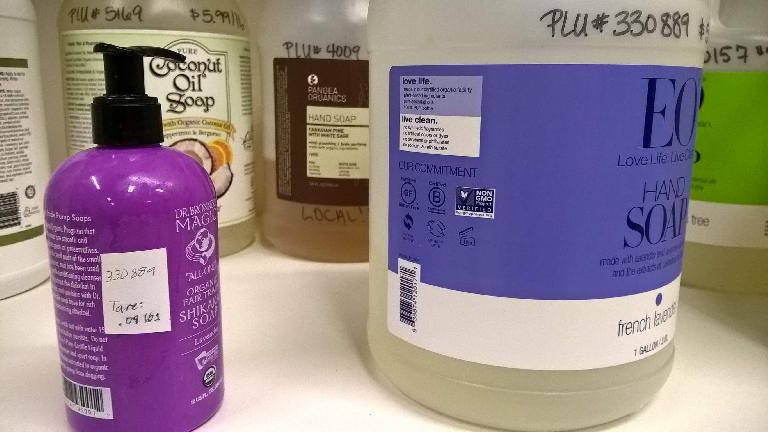
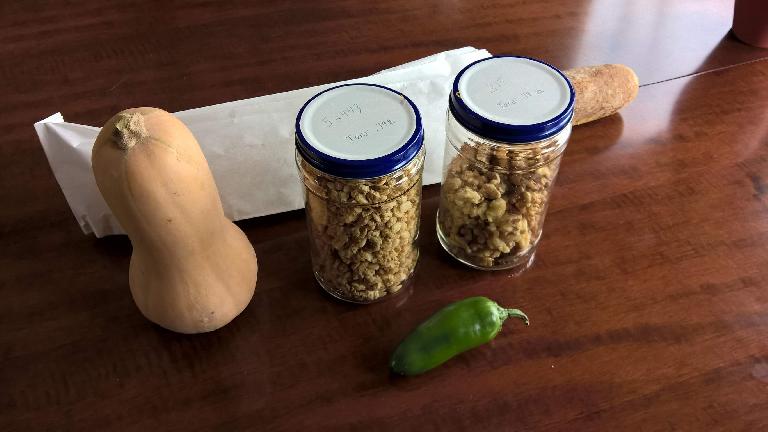
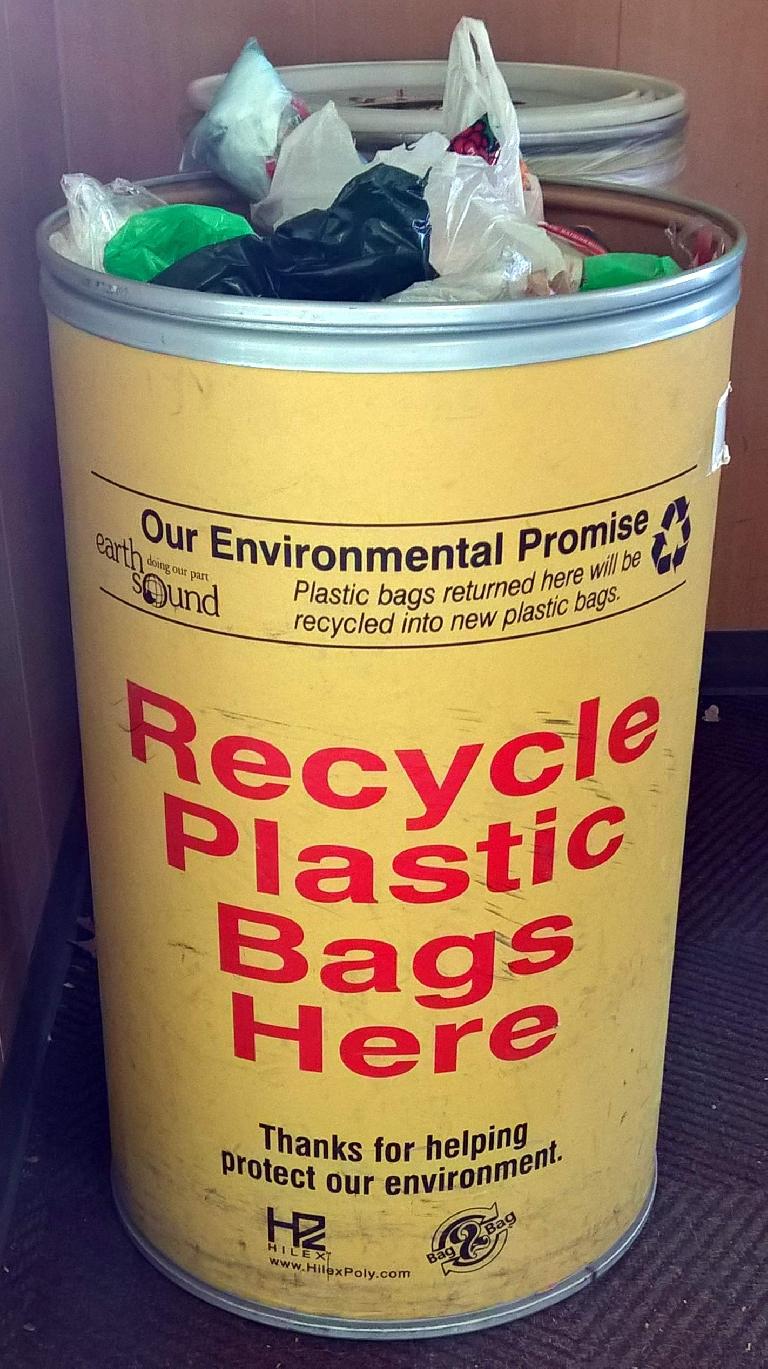
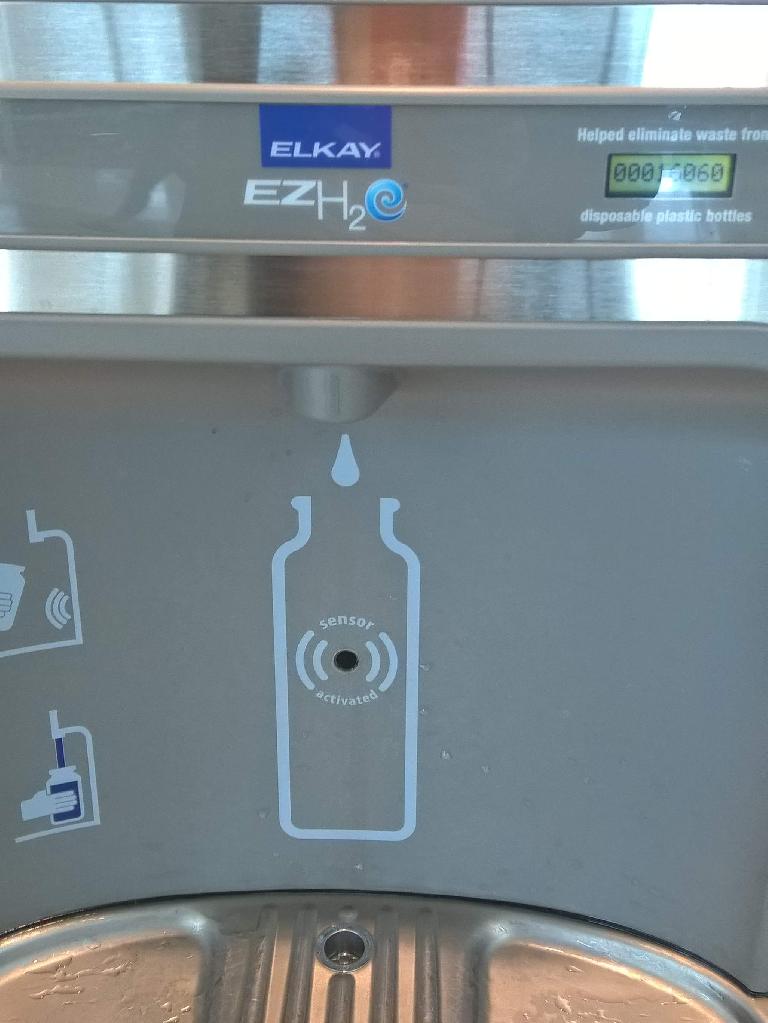
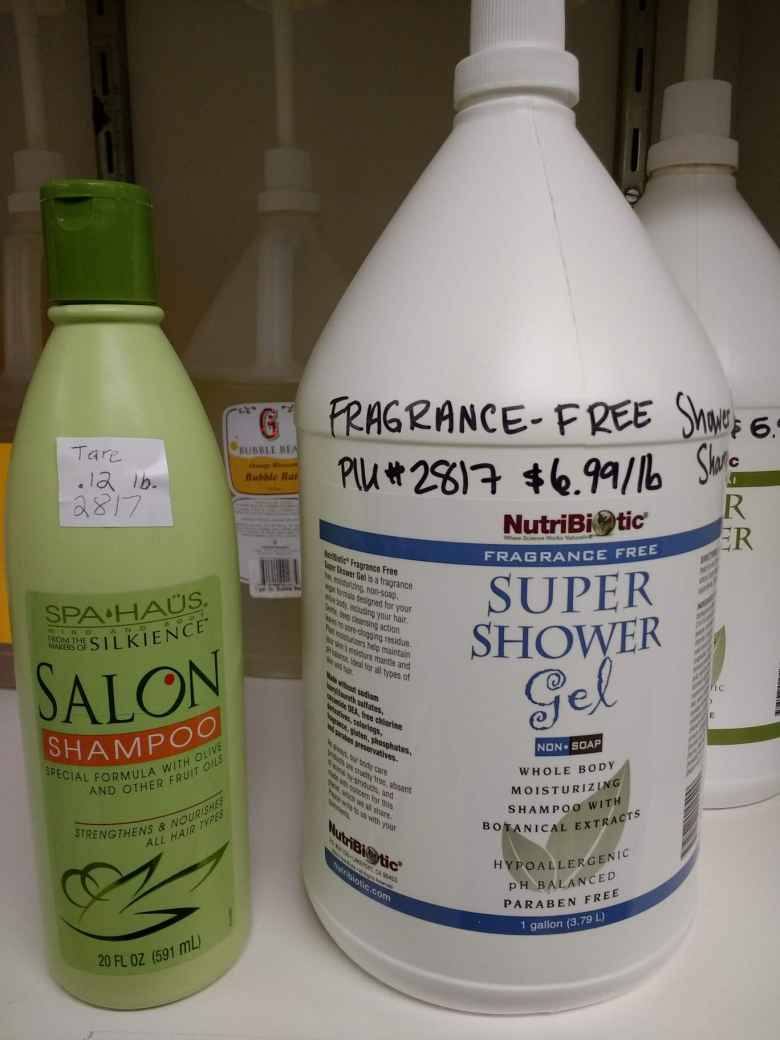
One comment:
Way to go Felix - really impressive to see this! New York seems to be reasonably diligent and progressive on recycling but I think the big offenders are still the consumer electroncis manufacturers with all their annoying plastic clamshell/claw packs!